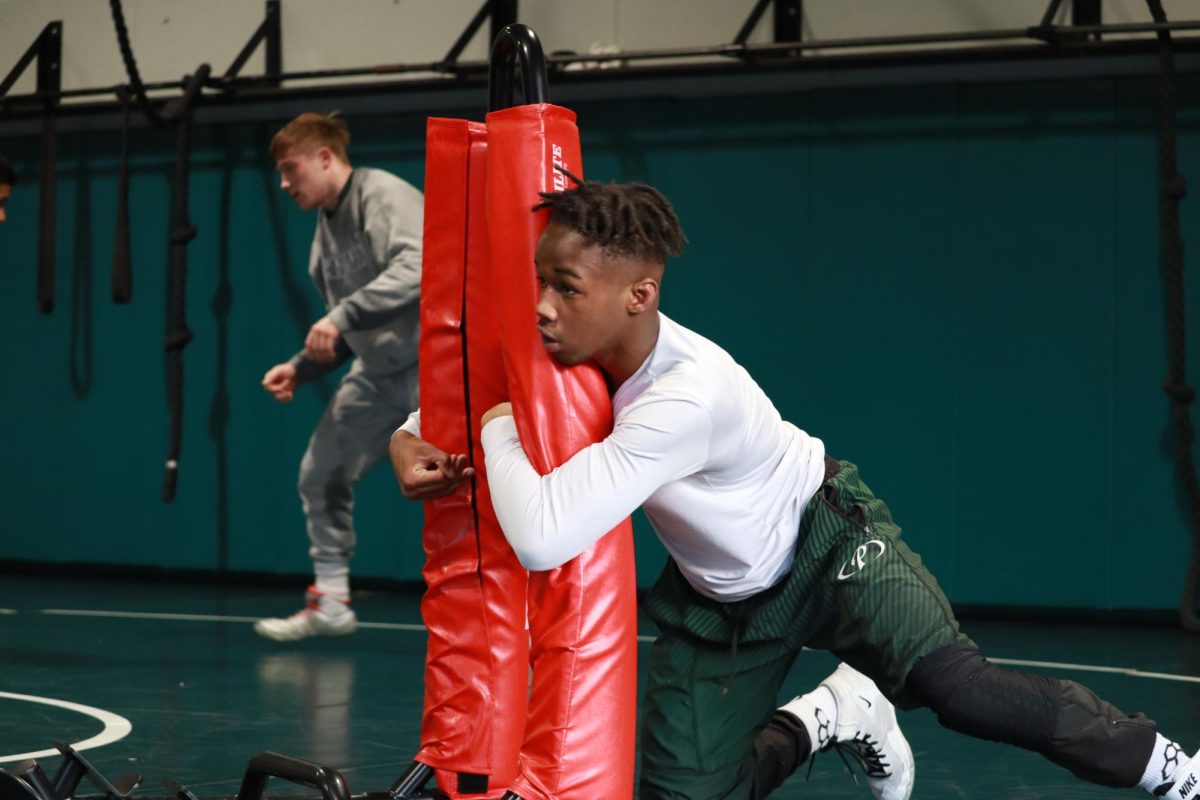Scroll through Stanford football star Christian McCaffrey’s Instagram, and you might notice that the comments below his photos are rather aggressive for those directed at a college football player leaving his school for the NFL.
“You’re a sellout,” says one. “I guess the name on the back is more important than the one on the front for you.”
“Can’t believe you would pick money over your team,” says another. “Used to be a fan, but I can’t support your decision. Sad that you lost half your fan base.”
Others are more explicit in their animosity toward McCaffrey.
“Kill yourself,” reads one of the more violent remarks. “I hope you break your neck and die on your first carry in the NFL you overrated b*tch.”
Mixed in with these comments are those that have a starkly opposite tone and message.
“I respect your choice Christian. Good job not taking an unnecessary risk.”
“It’s nice to see a college athlete make a smart decision about his future,” compliments another. “No reason to play in a meaningless game.”
Other commenters channel their [animosity] toward Stanford and the National Collegiate Athletic Association (NCAA).
“Good job standing up the NCAA. F*ck these colleges making money off your hard work,” said one comment. “If I were you I would give them the middle finger too. F*ck Stanford man using you like that.”
Without any context, one might never understand what McCaffrey has done to become such a controversial figure.
When McCaffrey, as well as LSU running back Leonard Fournette, decided to not play in their team’s respective bowl games in order to prevent injury before the upcoming NFL Draft, they opened a Pandora’s box of opinions and viewpoints.
Many were quick to weigh in, with NFL and college players and coaches adding their opinions over social media and during media interviews.
The decisions resulted in two viewpoints with very different, sometimes radical takes on the issue.
One side saw the decision as a safe way to prevent injury and a way to ensure that players would make it to the NFL.
The other side saw the decision as a selfish move aimed at protecting the individual with little to no regard for the team and the organization who helped them get to where they are. They see it as a betrayal of the college system.
In this article, we take a deeper look at the arguments for and against skipping a bowl game.
[divider]Pro[/divider]
The day is January 1, 2016. The annual Fiesta Bowl in Glendale, Arizona, is taking place. Thousands of fans decked in school colors have gathered to watch the Ohio State Buckeyes face off against the Notre Dame Fighting Irish. For Notre Dame linebacker Jaylon Smith, this is his final college football game before leaving for the NFL Draft, which is only a few months away.
Smith had emerged as one of the best players in college football, with the vast majority of experts projecting him as a top-five pick. But on this day, none of that matters. Smith is focused on the game; it is the first quarter, and the Irish need a stop. The ball is snapped. Smith hesitates, then bursts to the left in pursuit of Buckeyes quarterback JT Barrett. Suddenly, he is hit — no problem, he has been knocked down countless times in his career. He gets up, but is hit again.
He catches himself on one leg, resets, and tries to run, but instead of moving forward, he feels a snap in the front of his left kneecap, and then…numbness. He tries to stand back up, but crumples to the ground and remains there motionless. He tries to call a teammate, a ref, an opposing player or someone, but cannot enunciate his words. The coaches attempt to help him up, but he cannot move. Instead, he leaves the field on a cart, the crowd applauding for him on his way out.
When thinking objectively, there is no real argument for why star players should play in bowl games.
A few hours later, Smith will be diagnosed with a torn ACL, LCL and significant nerve damage throughout his left leg. Six days later, Smith has surgery on the knee to fix both tears. Come time for the NFL Draft, Smith would not go in the top five, top 10 or even top 25. Instead, he will fall all the way to the 34th overall pick, where he will be selected by the Dallas Cowboys.
Because the NFL determines pay based on which draft pick a player was chosen with, it is estimated that Smith missed out on nearly $20 million over four years. Had he been drafted in the top five as previously expected, he would have signed a contract for $23 million over four years. Instead, in the same time frame, he will make $4.4 million, a mere fraction of what could have been.
But this multi-million dollar loss represents only the first of many obstacles. Since then, Smith has yet to play in his first NFL game and it remains unclear if he will ever be the defensive powerhouse he was at Notre Dame.
Smith has become the poster child for those who point in favor of skipping bowl games. It is easy to see what would have happened had he not played — a boatload of cash, a starting spot on the Cowboys team and a shot at the Defensive Rookie of the Year award are foreseeable for a player of his caliber.
One wrong landing, hit or tackle could lead to a crippling injury that would not only cause the loss of millions but also a shot at every player’s dream of one day playing in the NFL.
Part of the blame goes to the expansion of the current bowl system: this season, 40 bowl games were played. The explosion in the number of bowl games played drastically changed the nature of the bowl game itself.
Making a bowl was once a badge of honor. Winning resulted in national recognition and success. Now, with the current system, nearly two-thirds of Division 1 College Football teams play in a bowl game, turning the game into nothing more than a glorified exhibition for the vast majority of teams and players involved.
When thinking objectively, there is no real argument for why star players should play in bowl games. Too many players have shredded ligaments and broken bones playing in useless games, and there is no real upside.
Players like Fournette and McCaffrey have already proven their worth to the NFL — they do not need to play one more game and risk getting injured. Playing in the bowl game does not have any rewards, as their draft stock would not rise, and a win in a bowl does not lead to a shot at winning the National Championship.
There is, however, a very real reason not to play. One wrong landing, hit, or tackle could lead to a crippling injury that would not only cause the loss of millions, but also a shot at every player’s dream of one day playing in the NFL.
To those who say college players should never skip bowl games, enough is enough. These players have put in countless hours of hard work and dedication to get to the level they are at. There is no reason for us to command them to play for our entertainment one last time–especially if it could result in losing all that they have worked so hard to achieve.
[divider]Con[/divider]
For college football players, December marks the start of bowl season. Through the fall, teams battle week in and week out to earn the privilege of playing in a bowl game. All the hits, runs and tackles of October come to an end for a few short weeks before the next season begins.
For many, a bowl game is more than just another game. It represents the struggles of the season, and provides one final obstacle for the team to overcome. It represents the pinnacle of the team’s success and the result of all the blood, sweat and tears the team has put in over the course of the season. To skip a bowl game is to skip out on the team.
There is something self-centered and egotistical about a player telling his team and coaches that they are nothing more than a stepping stone to get to the NFL. So many players do not have the chance to decide whether or not they want to skip a bowl game because their team was not invited to one. Many more do not get the chance to even play football.
There is something self-centered and egotistical about a player telling his team and coaches that they are nothing more than a stepping stone to get to the NFL.
Many claim that the bowl game is a “meaningless game” or that it “serves no purpose.” After all, as the logic goes, there is no shot at winning a national championship, nothing extra to show the NFL scouts, so why play?
For many players however, the privilege of being in a bowl game is something they strive to achieve at the beginning of every season. University of Kentucky quarterback Stephen Johnson perfectly summed up what the opportunity to play in the Gator Bowl meant to his team.
“Is this game special? Absolutely,” Johnson said, who led his team to a 5-2 finish that culminated in beating heavily favored rival Louisville with a trip to bowl season on the line. “For this team and our fans, it really means a lot. We want to play as long as we can. Just to have a game in December and have those extra practices means a lot to us.”
Johnson’s attitude will no doubt only become less and less common as time goes by. A football player who wants to play football? As strange as it may seem, in the current system of college football, the goal is not to play football, but rather to use football as a means of achieving financial success. College players used to dream of playing under the Sunday night lights. Now, players dream of spending their salaries on a new house.
What happened to staying in school and not chasing dollar signs?
When Leonard Fournette watched his teammates battle it out against Louisville in the Citrus Bowl, whether he knew it or not, he was sending a message, loud and clear. He was telling every little boy in the stands that football was not about the friendships or those 53 guys working towards one goal. It was about making sure he got paid.
Slowly, college is turning into the NFL’s developmental league. Nowadays, college-bound recruits say they are excited to spend the next three years at their college of choice, not four. Why three years and not the normal four? Because once they become eligible for the NFL Draft, they will undeniably bolt to the flow of cash the NFL offers.
College is the best place to spend two years waiting around until they reach the draft-eligible age. Skipping bowl games is simply an extension of this same principle. It seems today, many football players do not want to actually play football. Now, college players reason that if they have already proven their worth to the NFL scout, they should not play another down. They could get injured, after all.
But what happened to playing the game for the game? What happened to not giving up on your teammates? What happened to staying in school and not chasing dollar signs? And when does this stop? What if the team loses too many games at the beginning of the season and clearly won’t be successful? Does the player simply walk away? After all, there is no point playing from here on out, if the team is already eliminated from championship contention.
So to the bowl-skipper who posts photos about the team or the status thanking the coaches, I will say this: talk is cheap. If you really care about your teammates, show it. Go on the field, play alongside your team and win that game before you depart for the NFL. Until that happens, just realize the message that you send, the message that football is not a sport, but rather a vehicle, built for only one unforgiving, materialistic path: the road to millions.









